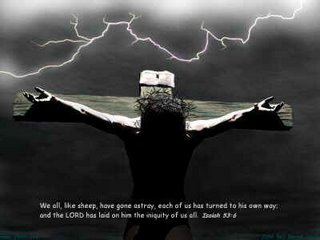
"The good life is the middle way;
Between ambition and compassion,
Between action and reflection,
Between company and solitude,
Between hedonism and abstinence,
Between passion and judgment,
Between the cup of coffee and the glass of wine..."
-Jay McInerney
Author of “Bright Lights, Big City” and “The Good Life”
Jay is an author who has been labeled by the media as part of the new generation of writers called “the literary brat-pack.” He was a resident of my town, Nashville, TN, for a number of years before returning to Greenwich Village, NY in 2005. His career began with the zeitgeist
"Bright Lights, Big City" published in 1984. Throughout his career McInerney has struggled against the strong, almost indelible, image of himself as both the author and protagonist of
"Bright Lights, Big City." In an interview conducted by Ron Hogan in 1997 – Beatrice Interview – he said the following,
“There's always been a personal element to my critical reception as a writer; people say that I'm too much of a public figure, too successful. My relationship with the press is an odd hall of mirrors.” I understand that tension very well.
His words above (which you can find at Starbucks on the “The Way I See It” cup #138) represent a very significant voice, belief, and ideal in the postmodern dialogue.
His key phrase is the opening one: the good life is the middle way. This is the rationale of the many cultural thinkers of our time--is it not?
The middle (the between) is the easy place. It is the place of imagined contentment and prolonged consequence. It is the great-negotiated corridor that seeks to appeal to as many as possible, but seeks to define nothing. It is the great vacancy occupied in the land called “Between”. It is the marketers dream and the prophets’ thorn. It is the place of indelible grey where truth distinctions are blended, blurred, and efficaciously bland. The middle way is safe, but not life changing; comfortable, but not reforming; acceptable, yet demands no sacrifice; happy, but void of the holy; lukewarm, but neither cold or hot. It asks to bear no cross; it seeks only to pacify and requires little change. Tolerance is the new theology and absolute truth is considered a four-letter word.
It is this benign existence of “between” that Jay unfolds above. Let me ask you today: what is the good life and where is it to be found? What is the answer to Mr. McInerney’s unasked question of “between?” What is the way out of the tepid, to a life which is hot? What does it mean to live life to the fullest, rather than to live it in the half-heartedness of “between?”
Jesus said this, Matt. 16:24 ¶ Then Jesus said to His disciples, “If anyone wishes to come after
Me, he must deny himself, and take up his cross and follow Me. Matt. 16:25 “For
whoever wishes to save his life will lose it; but whoever loses his life for My
sake will find it. Matt. 16:26 “For what will it profit a man if he gains the
whole world and forfeits his soul? Or what will a man give in exchange for his
soul? Matt. 16:27 “For the Son of Man is going to come in the glory of His
Father with His angels, and WILL THEN REPAY EVERY MAN ACCORDING TO HIS DEEDS.
There is no “between” with Jesus—He demands complete surrender to His claims and asks that your life be abandoned to Him as Lord, King and Savior. Jesus is calling people today to turn from the hopeless, grey life of the “between”, and confess Him as Lord of your life, believe solely upon Him and His truth claims, and live for Him each day. That IS the full life. And once you have tasted it (1 Peter 2:1-3), the life of the “between” tastes only tepid, lukewarm, and moderate. The between life cannot satisfy, cannot save, cannot sanctify, cannot bring ultimate joy and contentment. It is only the life of radical surrender to the person and gospel of the Lord Jesus Christ that can rescue one from "the between life" now and the wrath which is to come. It is only found through the cross of Christ and His resurrection from the dead.
Read the following with that in mind. The cross offers no between; and that is why it is a radical thing. Peace.
The Cross is a Radical Thing
"I have been crucified with Christ; and it is no longer I who live, but Christ lives in me; and the life which I now live in the flesh I live by faith in the Son of God, who loved me, and delivered Himself up for me" -Galatians 2:20.

The cross of our Lord Jesus Christ is the most unprecedented event in human history. In Jesus' day it was the most excruciating, painful, horrific way of death known to man. It was usually reserved for the worst of criminals who had committed the most inhumane of crimes. The Roman roads were silhouetted with literally thousands of crosses that bore not only those outlaws, but ultimately the precious martyred bodies of the faithful for God.
A. W. Tozer brings this authenticity of the cross to vivid truth when he says,
"We must do something about the cross and one of two things only we can - flee it or die upon it! The cross will cut into our lives where it hurts worst sparing neither us nor our carefully cultivated reputations." Sin had to be destroyed. Death had to be conquered. The only way to eternal life is for the Old Adam to die - to be crucified with Christ. To follow Jesus meant hardship, persecution, almost certain death.
When Jesus called for all His true disciples to "deny [themselves], take up [their] cross, and follow Him" (Matthew 16:24; Luke 14:26f), He was not offering a suggestion but issuing a command. He was calling for the death of the old life, the old man, the old nature...
the death of self (Romans 6:6). The crowd pleasers and thrill seekers of His time quickly dismissed any notion of giving up all to follow Him. They wanted an easier way - a broader road that they thought would lead to heaven (Matthew 7:13-14).
Nowhere in any of the gospels did our Lord Jesus say, "If any man wishes to be my disciple let him slip up his hand and put it down quietly." That would be easy; no cross. The simple truth is this: happiness is convenient, but holiness costs. He does not want our hands raised beloved, but our lives surrendered.
Every true believer of the Lord Jesus Christ will know four realities of the cross: 1. the
nakedness of the cross; 2. the
loneliness of the cross; 3. the
humiliation of the cross; and 4. the
glory of the cross.
There is a nakedness to the cross.
We must be stripped of all confidence in our flesh; consider our lives to be bankrupt of any goodness that could add one additional work to our salvation. We must come destitute, broken, stripped of all fleshly religious boasting and as the hymn writer has instructed to sy,
"nothing in my hands I bring, simply to Your cross I cling." (Phil. 3:3-12).
There is a loneliness to the cross.
We must come alone to Christ; not carrying our parents cross, not our neighbors cross, not our friends cross, nor our brothers or sisters or spouse's cross, but
our cross. We must follow Jesus even if all others deny Him, reject Him, turn away from Him, and scorn Him (Luke 14:26-28; Matthew 10:34-39; 16:24-26).
There is a humiliation to the cross.
Pride is the most deadly of all sins; religious pride intensifies this depravity a hundred fold. Pride in ourselves, in our good works, in our abilities, in our own righteousness, must be crucified with Christ. We must be humbled under the weight of our sin and come as beggars pleading for His mercy; realizing that no church system, no religious practice, no ceremony or feast day, no indulgence from any church, no works of any kind can save us or add to our salvation (Isaiah 64:6; Romans 3:10-12, 6:6; Matthew 5:3,20).
Lastly, there is a glory to the cross.
The cross was not tragedy--but triumph. What man viewed in horror and shame, God viewed as victory. For now man once alienated by sin, has been brought into peace with God through our Lord Jesus Christ (Romans 5:1). Christ's death on the cross was a substitution for you and me. He died in our place. He accomplished what man and all his religious good works could never do and that was to satisfy the wrath, justice, righteousness and holiness of God
once for all. It took an unblemished Lamb; a perfect High Priest; and a sinless life lived. All of those things were present only in the Lord Jesus Christ.
As Dr. MacArthur is profound when he says,
"Every sin, ever committed, by everyone that would ever believe was imputed or credited to Christ on the cross." Though He is sinless, undefiled and absolutely holy, He was treated as if He lived our life. And by an act of grace (God's unmerited favor to us; getting what we don't deserve) when we by faith place our sole hope and trust for our salvation in the finished work and person of Jesus Christ alone, though we are sinful people to the core we are treated as if we lived His life; for His perfect righteousness is imputed or credited to us. If you know Christ as your Lord and Savior you are clothed with the perfect righteousness of Christ not obtained through law-keeping, but through faith. What a wonderful, merciful Savior we have in the Lord Jesus Christ! Amen?
Our Lord, having conquered sin and death now gives life-everlasting, the forgiveness of sin, newness of life, securing us with His precious Holy Spirit as the guarantee of our redemption to all those that the Father has drawn and chosen from all eternity to be His own (John 3:16-18; Hebrews 2:14; 2 Corinthians 5:17,21; Ephesians 1:13-14; Galatians 2:20; Romans 5:1-10). What tremendous victories that cause us to glory in our Lord. (Titus 3:4-6).
Like the rich young ruler (Mark 10:17-22) who wanted heaven on his own terms, people today, are trying to find their own way to God. But Jesus says, "I am the way, and the truth, and the life; no one comes to the Father, but through Me" (John 14:6).
Come out of the “between” life of this generation, and embrace Jesus; for His cross is truly a radical thing.
 DIGGING DEEPER
DIGGING DEEPER"Jesus Our Man In Glory" by A.W. Tozer;
"The Cross of Christ" by John Stott;
"Redemption Accomplished and Applied" by John Murray.
LIFE APPLICATION1. Why do you think the cross has become little more than a fashion statement in the minds of many people as they wear them on necklaces, etc...?
2. What has the cross cost you? What did it cost Jesus and accomplish on behalf of God and man?
3. What are the four realities of the cross? Explain in your own words.
4. Write down how you will daily take up your cross in living for Jesus. Pray over these things that the Lord would give you strength as you follow Him.
5. Use these passages of Scripture in your quiet-times this week. Reflect on the atoning work of Jesus Christ on the cross: Mark 10:17-21; 38-39; Psalm 22; Isaiah 53; Hebrews 2:5-18;Phil. 2:1-12; John 19; Luke 23.
this has been an encore presentation






















